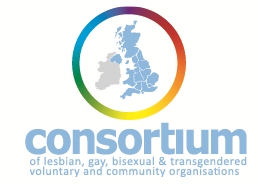This document forms part of the ‘Safe to Learn’ suite of anti-bullying guidance for schools. It outlines what school leaders and school staff can do to prevent and respond to sexist, sexual and transphobic bullying. The guidance aims to do two things: firstly, build understanding around what sexist, sexual and transphobic bullying is and how it is relevant to schools, and secondly provide schools with the information they need to prevent and tackle this form of bullying. This includes the development of whole school policy and effective practice.
Extract from Document
Preventing bullying in all its forms and taking swift, effective action to respond to bullying is a responsibility shared by all schools. All bullying is unacceptable, and schools should use the full range of sanctions at their disposal to deal firmly with bullying when it does occur. Section 89 of the Education and Inspections Act 2006 requires all head teachers to determine a school behaviour policy, which must include measures to be taken with a view to ‘encouraging good behaviour and respect for others on the part of pupils and, in particular, preventing all forms of bullying among pupils.’
Many schools now have robust procedures in place to deal with bullying. However, the prevalence of sexist, sexual and transphobic bullying may be underestimated. This guidance has been developed to help school staff recognise, report and respond to these forms of bullying. The need to address sexist, sexual and transphobic bullying should also be viewed in the wider context of every school’s duty to implement the Gender Equality Duty (2007); to promote pupil well-being; and to promote community cohesion.
Schools are places where children and young people learn, develop and grow, but they are not isolated from the stereotypes and prejudices that exist in the wider world. A key element of the development children and young people undergo at school will relate to their gender and gender identity. Schools have an important part to play in addressing attitudes relating to gender, supporting pupils to develop positive relationships with others and enabling children and young people to understand and explore their identity without fear of harm, humiliation or intimidation.
Sexist, sexual and transphobic bullying is fundamentally an issue of equality. Although girls are most frequently harmed by sexist and sexual bullying, both sexual and transphobic bullying may affect boys and girls. Schools should consider all pupils as potentially at risk of bullying, particularly where they are perceived by others not to conform to dominant or stereotypical gender roles.
Harmful bullying behaviours displayed by pupils in schools, such as teasing and name-calling, or groping, can be motivated by sexist or transphobic attitudes. In extreme cases, these attitudes can also motivate criminal acts that can be categorised as sexual harassment or hate crime. Incidents of very different levels of seriousness will of course require very different responses from schools, with cases of the most serious nature requiring police involvement. This guidance is not designed to cover all sexist, sexual or transgender issues – it is focused on preventing and responding to bullying. However, it does touch on the wider issues that will be relevant to staff in schools responsible for preventing and responding to these forms of bullying. Links and further references are provided throughout for those seeking further information.
There are a range of strongly-held views about the issues covered in this guidance. However, sexist, sexual and transphobic bullying and views in all their manifestation are not acceptable and should not be tolerated. Bullying is a safeguarding issue – protecting all children and young people from harm is a responsibility we all share.










